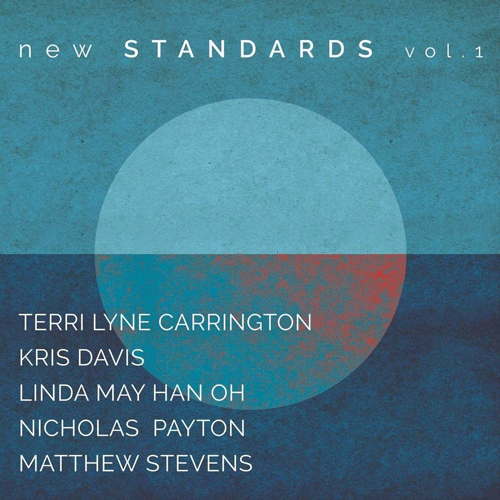Terri Lyne Carrington’s book, New Standards: 101 Lead Sheets by Women Composers re-envisions the education of jazz. Carrington has received numerous accolades for her drumming, composing and producing. She established herself as the first female musician to receive the award for Best Jazz Instrumental Album.
However, Carrington also distinguishes herself in the world of education. In 2007, she was appointed professor at Berklee College of Music. Following this, she became the founder and artistic director of the Berklee Institute of Jazz and Gender Justice. The aim: to bridge the gap in the jazz industry by promoting gender equity.
Whilst Carrington arranged an event for the organisation, her project was born. She found herself at a loss searching for sheet music by female composers. This revealed that previous pedagogical subject matter was substantially material written by men.
Carrington’s students themselves studied The Real Book, the predominant collection of sheet music used academically in jazz. The standard, and the canonisation of jazz, originated from informal collections of lead sheets. The illegal distribution of these publications evolved into what became The Real Book (that was legally published by Hal Leonard).
Whilst The Real Book has dominated educationally for decades, it is not the exception. Carrington explains to Juana Summers on All Things Considered that within this book, the organization “couldn't find any songs written by women, other than Ann Ronell's Willow Weep for Me... and maybe a Billie Holiday blues [song]. We couldn't find songs written by women.”

Carrington’s book addresses this dire lack of representation and incorporates compositions by women from 1922 to 2021, making these composers easily accessible to all. Consequently, she changes the standards of jazz through the core of her project, representing the underrepresented, which undoubtedly supports the United Nations Sustainable Development Goal for Gender Equality and Quality Education.
She expressed to Lauren O'Neil for The New York Times that, “People will often say, ‘Well, I would play some songs written by women, but I don’t know any,’ or, ‘Where are they?’”
This distressing narrative is reflective of how female composers are not delineated in the jazz industry. In 2019, Vick Bain’s report, Counting the Music Industry highlighted that only 10.87% on jazz artist rosters were women. The report continues to examine that 26% of these women were solo artists, whereas 8% were in groups. Of all genres, Jazz had the most discrepancy between the genders.
This is underlined by NPR Music Jazz Critics Poll, in which from 2017 to 2019 the majority of recordings that ranked “included no women musicians at all among their core personnel”.
Terri Lyne Carrington’s New Standards, being published by Berklee Press and ironically distributed by Hal Leonard, combats this issue. She explains to The New York Times that she herself was not aware of the extent to which women are excluded, as to her “I played with women that wrote their own material, so that was a given to me: that women are composers.”
However, within her own practice she expressed on All Things Considered that “I didn't notice that I was mostly playing songs written by men because we are so used to that and we've been socialized through jazz culture to think that that's normal.”
Her selection of 101 women composers include a wide scope of different eras and a myriad of jazz styles. The result: a treasure trove of influential pieces from under-acknowledged contemporary visionaries and timeless jazz composers.

The album holds 11 selections from the book and features a band with many special guests. Not only is New Standards shaping the world of Jazz in terms of inclusivity, it is also modifying how music is represented on the page. Jaimie Branch contributed to the collection, unconventionally using shapes, images, lines and colours to express concepts.
Carrington divulges her sentiments to The New York Times, addressing that the collection was made “not to diminish the canon” of jazz Music, but instead uplift female composers “a necessary drop in the relatively empty bucket”. To Carrington, the objective being to “feel the abundance of femme musicianship, and a model of what advocacy can look like.”
As E. Wehr-Flowers highlights in Differences between Male and Female Students, female composers are conflicted between being: “‘good girls’ or ‘play like men.’ The former forced them to emphasise looks over musical ability; the latter used their unexpected musical talent to nullify their sexuality.”
Carrington addresses this concept on All Things Considered, “For me, I felt like I would be successful if I played like a man... and I think a lot of successful women have had that in their mind.”
Terri Lyne Carrington reimagines the world of jazz without patriarchy, and questions just how attainable it is. Her striving for inclusion of female written pieces within educational books will indisputably lead to progress.
Take a moment to listen to the 2023 Grammy nominated album, new STANDARDS vol. 1, on Youtube and Spotify. Find out more About Terri Lyne Carrington on her website.
